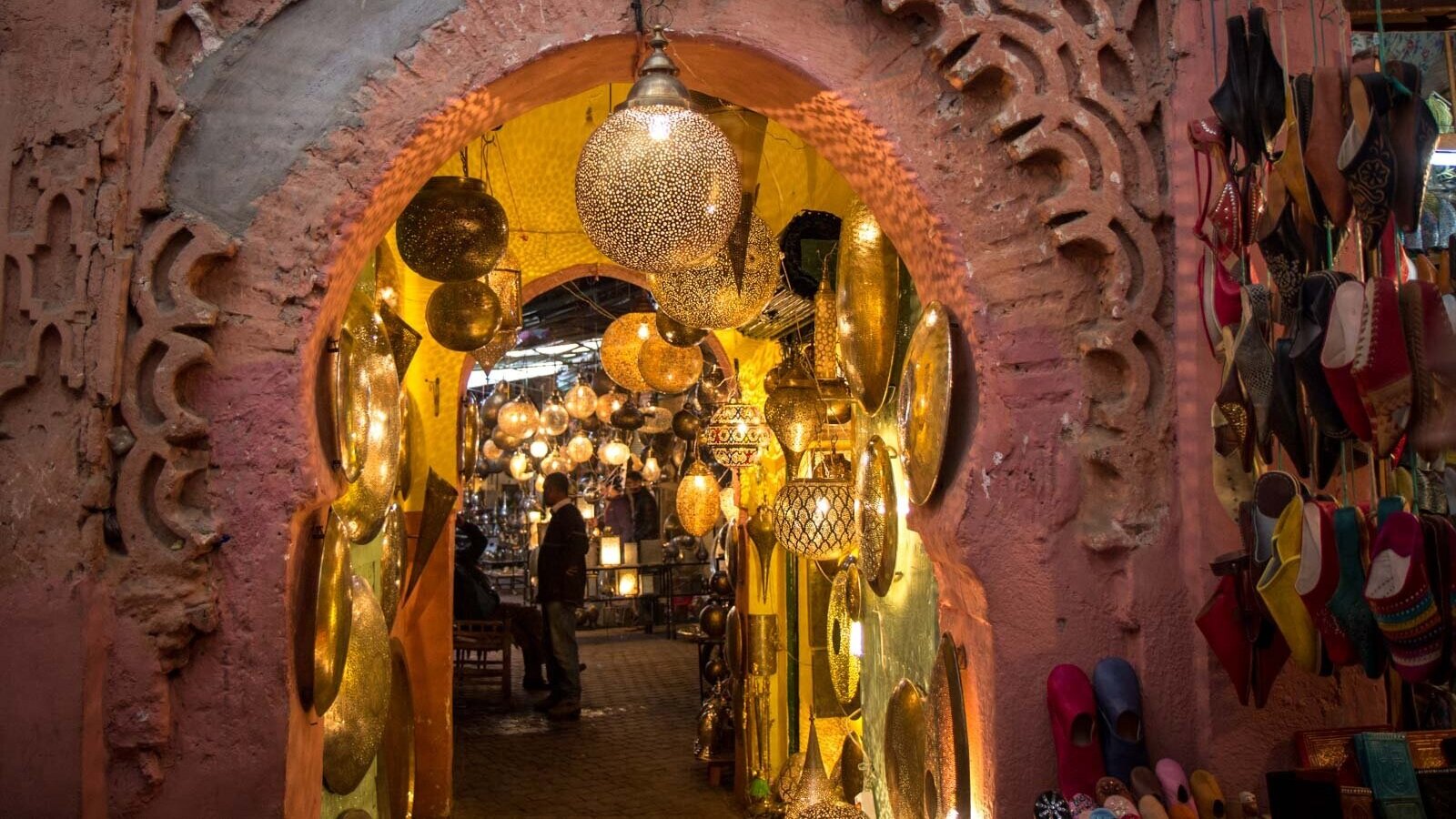What Marrakech Taught Me About My Color
After months of pinning destination pictures on my Pinterest board for my birthday trip, waking up to calls for prayer in a magnolia-filled Moroccan riad was a dream come true. My travel buddy, Ashley, and I took an overnight flight, and arrived in Marrakech before sunrise. I couldn't wait to walk to the medina by morning light, barter the price of turmeric in my very broken French and find cultural gems with the ladies at the shoe stalls.
As soon as the sun was up, I threw on jeans, sneakers and a light pullover sweater for my first day in Marrakech. Ashley had her faux locs pulled back in a low ponytail with a printed scarf tied around her crown like a headband. I decided to wear a printed head wrap with a little of my natural hair peeking out of the top. I wanted to show respect for the modesty of the Moroccan women, all while making a conscious choice to draw as little attention as possible. We decided to forgo the riad’s option of a tour guide for the day and set out to investigate the city on our own.
Walking from our riad, we heard the first of what we learned would become a standard catcall during our time there; ‘Hey! I like your color,’ with the long ending emphasis on “color.” I eventually learned that men catcalling a tourist woman’s appearance is normal in Morocco. One of our first lessons came from a group of teenage boys, some of whom had helped us find our riad. As they sat on scooters in front of a small store on the corner later that day, we thanked them for their help and one asked ‘Are you African or American?’ My friend and I looked at each other and after a short pause we said, “Both.” We knew what they were really asking. Our cab driver (who gave us his condolences for America’s current state of political shambles) explained that Royal Air Maroc had just added an affordable flight from Accra to Casablanca, and many more West Africans were visiting his home country.
Morocco has a very long history of (anti-black) African racism, and denial of its connection to Africa, preferring to associate with Europe or Arab countries. After a surge in targeted violence against African migrants in 2012, anti-racist activist groups in Morocco launched a “Neither Slave, Nor Negro” campaign to curb racial epithets and violence targeting immigrant Africans. This ‘African or American’ question wasn’t just about where we’d come from, it was about our heritage and what privileges may or may not be granted to us based on our allegiances. My friend and I knew the weight of our answer, and chose to assume our position somewhere between American acceptance and African opposition. Still, during our drive to the medina, we were excited to explore Morocco’s beauty secrets like argan oil, revitalizing muds and ancient skin rejuvenation techniques.
Along the way, we found signs for skin creams promising that those rich spices and oils would brighten and plump our skin—and the ad’s fair skin model signaled that “brighten” meant “lighten.” Stalls in the medina sold parasols and wraps for women to shade themselves from the tanning effects of the sun. Skin lightening is a $10 billion dollar global industry, and is projected to reach $23 billion by 2020, according to a World Health Organization estimate, and we saw its long arm. We stopped in multiple beauty shops where women were grinding seeds by hand to make argan oil and offering us products to soften our skin and give us the chance to take a bit of Morocco home with us. Inside each of these shops also sat a skin lightening display, and outside of almost everyone were men catcalling women tourists on everything from their clothing to the number of shopping bags they carried. One saleswoman told me that I had beautiful skin while rubbing freshly ground argan paste on my hands. Like the men outside, she said that she liked my complexion, but her suggestion to try one of the skin “brightening” creams made me think she meant I only had a nice complexion to look at, never to own. I was intrigued, but not surprised, that the dominating European beauty standards causing black Americans to question our natural features, had reached all the way to the continent.
My friend and I were never quite sure if the color compliments we received were in jest or genuine admiration, but the idea that our skin was something to be noticed all while seeing ads telling us to change ourselves haunted us the rest of our time in Morocco. Back at the corner store with our teenage helpers, the conversation of our heritage and origin lingered. After our response detailing both African and American descent, one boy who had been quiet all along looked up and, with satisfying clarity, said, “Oh, Obama’s Daughters.” The other teens shook their heads up and down as we said à bientôt—'see you soon' in French—and continued walking towards the Red City.
Find more of Shayna Watson's journeys over at ANuCreature.

